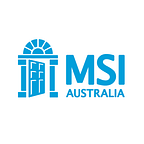Speech by Margherita DallOcco-Vaccaro | The Road to Abortion Equity
The Federal Senate has established an Inquiry into universal access to reproductive healthcare. The Inquiry was called because the government has acknowledged we have a crisis of sexual and reproductive health access.
On Wednesday 9 November 2022, we hosted an online forum to explore what the inquiry terms mean, how it applies in practice and provided a submission template which you can download here to assist people in writing their own.
Margherita Dall’Occo-Vaccaro gave the following speech at our webinar, which you can watch here.
I want to first acknowledge that I’m calling in from the land of the Ngunnawal Ngambri people and I pay my respects to elders, past, present and emerging.
I want to acknowledge the importance of including and involving First Nations voices in any and all conversations about reproductive health.
I want to give a quick description of myself: I’m a white young woman with brown hair that is tied up, I am wearing a lime green short sleeve and collared shirt, my background is blurred.
It is important to acknowledge how disabled women are thoroughly impacted through conversations around reproductive rights and abortion laws, and how in so many of these conversations, we lack a solutions focus.
Conversations are beneficial when they lead to action and response which is what we are calling for today.
When talking about the road to abortion equity and reproductive health, talking about reproductive violence against people with disability is fundamental.
There are a few main actions that we call on to be enacted:
Firstly, a plan to conduct a legislative scan across all Australia to harmonise and update legislation across jurisdictions on reproductive rights.
Currently different states and territories have different legislation on reproductive rights with varying access levels.
Not only is this mix of legislation harmful to women and gender diverse people, but it is confusing and makes accessing services difficult and daunting.
Without having harmonised legislation women around Australia are unable to access the same care, rights or education.
Not only is it essential to ensure women, especially those with disability, are not coerced or forced into using contraception or going through sterilisation, but it is one of us Australia’s commitments under CEDAW (United Nations Committee on the Elimination of Discrimination against Women) that we must commit to.
Secondly, we need to commission a national inquiry into reproductive violence for people with disabilities starting with the removal of babies and children from parents with disabilities and forced sterilisation.
Women and gender diverse people with disability have been subject to reproductive violence and coercion, much of which has gone unnoticed.
This requires a national inquiry not only to understand and uncover these practices, but to ensure that women and gender diverse people do not continue to be subjected to this violence.
Aboriginal and Torres Strait Islander people have to be at the forefront of this conversation, with a long colonial history of child removal that continues to traumatise families as women with disabilities are separated from their children even now.
Thirdly, the government needs to implement a national redress scheme for victim survivors of various forms of sexual and reproductive violence, which is inclusive of and addresses both Aboriginal and Torres Strait Islander women and other communities of disabled women who have intersecting and overlapping identities.
This redress scheme needs to include specific measures for victim survivors that range from compensation, access to rehabilitation and trauma recovering to apologies, memorialisation, and community education.
Lastly, we need a national strategy in consultation with people with disability and their organisations to improve access and availability of comprehensive and disability inclusive sexual, and reproductive health and information particularly for young women and girls.
Recently a Women with Disabilities Australia Report uncovered that most young women and girls don’t make their own decisions on menstruation and contraception.
Instead parents, guardians, and doctors are making these decisions on their behalf.
Without a strategy to improve education and knowledge young women are left without knowing their reproductive rights, and what they’re entitled to leading to an increased risk of trauma, coercion and force.
These are all important and highlighted actions that needs to be taken to achieve reproductive justice.
Thank you.
Margherita is a migrant, queer, young woman with a disability. She currently works in Youth Development at Women With Disabilities Australia (WWDA), a national Alliance for the office for women and Disabled Peoples organisation.
She works on a wide range of projects which advocate for young women and non-binary people with disability, as well as representing young people in policy, government and international spaces. She has been recently focused on sexual and reproductive rights for young women and gender diverse people with disabilities as a focus in her work.
Margherita is also involved in various other advocacy networks including being a member of the past CYDA Youth Council and Commonwealth Children and Youth Disability Network, where she passionately engages in community and loves to interact with others who are working towards intersectional justice.
